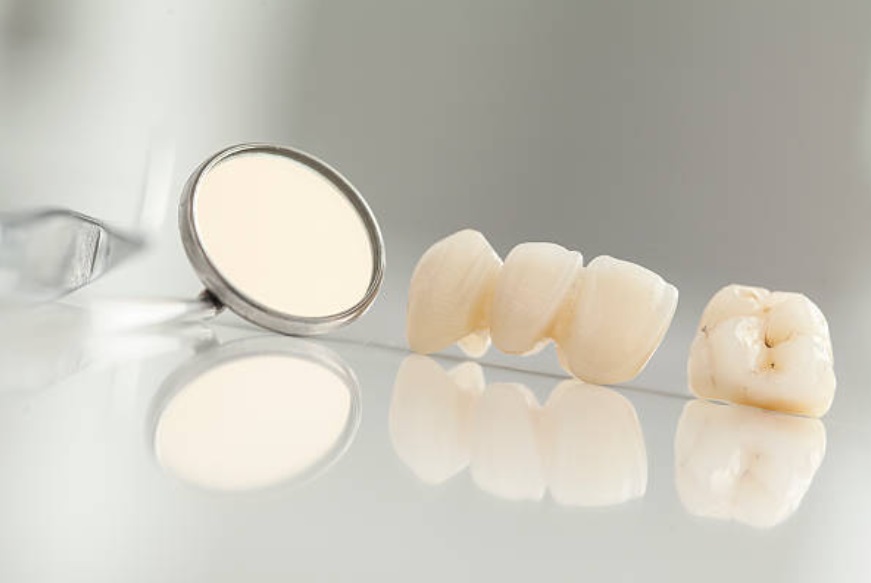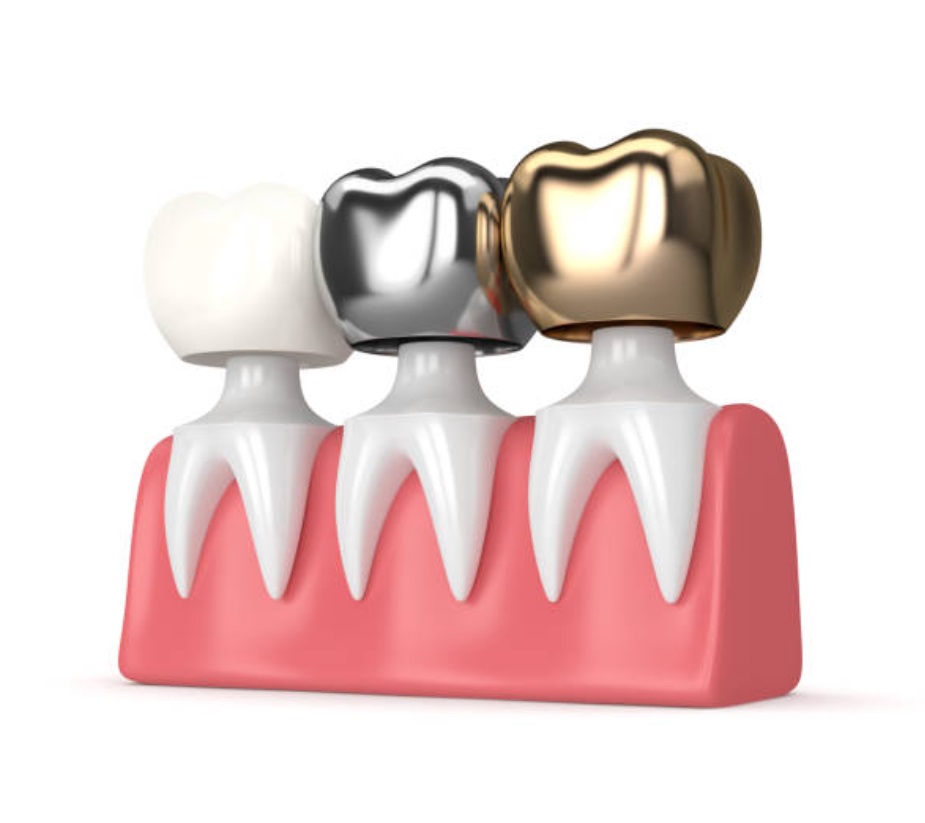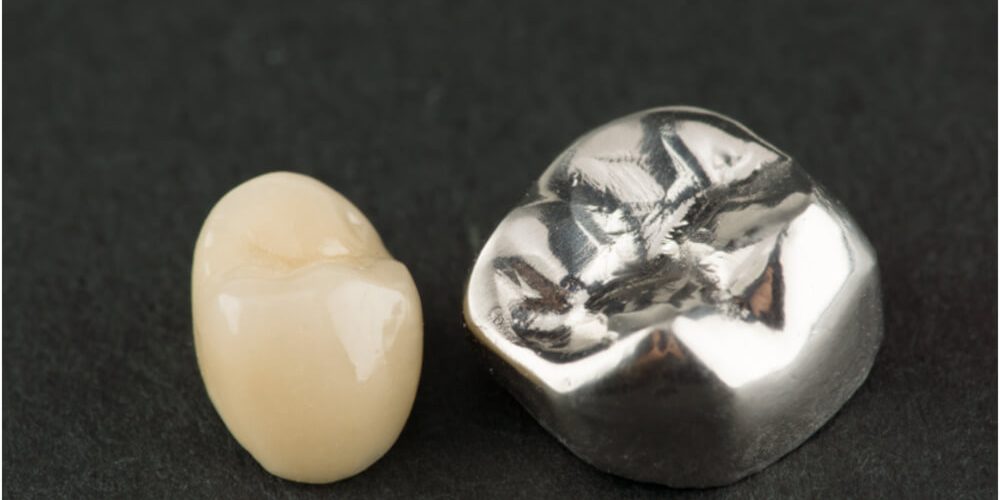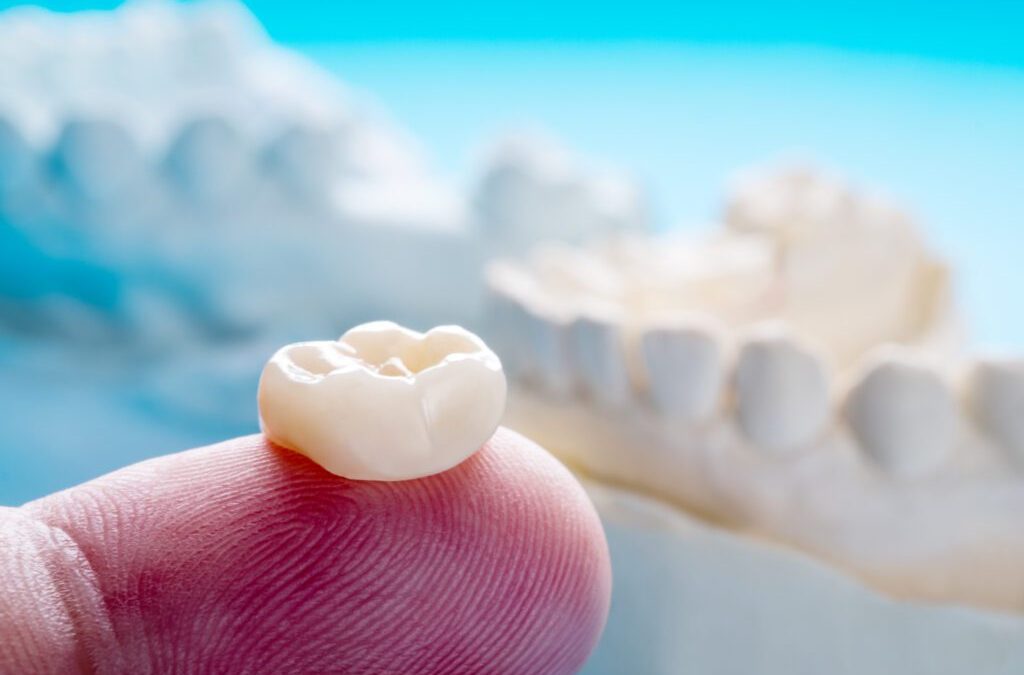Welcome to Roots & Crown microDENTISTry, Your Premier Destination for Dental Care in Kharar, Punjab!
At Roots & Crown microDENTISTry, we understand the importance of maintaining optimal oral health for your overall well-being. Among the many services we offer, dental crowns play a significant role in restoring your smile’s functionality and aesthetics. This comprehensive guide will delve into everything you need to know about dental crowns, from their types and benefits to the procedure itself and beyond.
Dental Crowns: A Brief Overview
Dental crowns, also known as caps, are prosthetic devices designed to cover or encase a damaged or decayed tooth. They restore the tooth’s shape, size, strength, and appearance, providing protection and support to enhance its longevity and functionality.

When Would You Need a Dental Crown?
Several scenarios may necessitate the use of a dental crown, including:
- To Protect a Weak Tooth: A tooth weakened by decay, fracture, or extensive filling may require a crown to prevent further damage.
- To Restore a Broken or Damaged Tooth: Crowns can effectively restore teeth that are cracked, chipped, or fractured due to trauma or injury.
- Following Root Canal Therapy: Teeth undergoing root canal treatment often require crowns to strengthen and protect them from future fractures.
- To Enhance Aesthetics: Crowns can improve the appearance of misshapen, discolored, or severely stained teeth, restoring a natural and pleasing smile.
Types of Dental Crowns
Dental crowns are available in various materials, each offering unique advantages in terms of durability, aesthetics, and cost. Common types of dental crowns include:
- Porcelain Crowns: Known for their natural appearance and biocompatibility, they are an excellent choice for restoring front teeth.
- Porcelain-Fused-to-Metal (PFM) Crowns: These crowns combine the strength of metal with the aesthetics of porcelain, making them suitable for both front and back teeth.
- All-Ceramic Crowns: Made entirely of ceramic material, these crowns provide exceptional aesthetics and are ideal for individuals with metal allergies.
- Metal Crowns: Typically crafted from gold alloy or base metal, metal crowns offer unparalleled strength and durability, making them suitable for molars and teeth subjected to heavy chewing forces.

What Happens During a Dental Crown Procedure?
The dental crown procedure typically involves the following steps:
- Consultation and Examination: During your initial visit, our experienced dentist will conduct a thorough examination of your teeth and gums to determine if a crown is the best treatment option for you.
- Tooth Preparation: The tooth receiving the crown is prepared by removing a small amount of enamel to accommodate the crown’s size and shape.
- Impression Taking: An impression or mold of the prepared tooth is taken to ensure the crown fits perfectly.
- Temporary Crown Placement: While your permanent crown is being custom-made in a dental laboratory, a temporary crown is placed to protect the prepared tooth.
- Final Crown Placement: Once your permanent crown is ready, it is carefully placed and adjusted for optimal fit and comfort.
- Cementation: The crown is permanently bonded to the tooth using dental cement, ensuring stability and longevity.
What Are the Benefits of Dental Crowns?
Dental crowns offer a multitude of benefits, including:
- Restoration of Tooth Functionality: Crowns restore the strength, shape, and function of damaged or decayed teeth, allowing for normal biting and chewing.
- Improved Aesthetics: Crowns enhance the appearance of teeth by concealing imperfections such as cracks, chips, and discoloration, resulting in a more attractive smile.
- Protection of Tooth Structure: Crowns provide a protective barrier that helps prevent further damage, decay, or fracture of the underlying tooth.
- Longevity: With proper care and maintenance, dental crowns can last for many years, providing a durable and reliable solution for tooth restoration.
What Are the Disadvantages of Dental Crowns?
While dental crowns offer numerous advantages, there are some potential drawbacks to consider, including:
- Cost: The cost of dental crowns can vary depending on the material used and the complexity of the procedure, making them a significant investment for some patients.
- Sensitivity: Some individuals may experience temporary sensitivity or discomfort following the placement of a crown, particularly if the tooth’s nerve is involved in the preparation process.
- Risk of Decay: While crowns protect the underlying tooth from decay, the margin where the crown meets the tooth may be susceptible to bacterial invasion if proper oral hygiene is not maintained.
How Long Does It Take to Feel Better After a Dental Crown Procedure?
In most cases, any discomfort or sensitivity experienced after a dental crown procedure typically subsides within a few days to a week. Over-the-counter pain relievers and avoiding hard or sticky foods can help alleviate any discomfort during the healing process.
Foods to Avoid with a Crown
While dental crowns are durable, certain foods may increase the risk of damaging or dislodging the crown. It is advisable to avoid:
- Hard Foods: Such as nuts, hard candies, and ice cubes, which can exert excessive pressure on the crown.
- Sticky Foods: Like caramel, taffy, and chewing gum, which may pull the crown off or become stuck to it.
- Acidic Foods: Such as citrus fruits and vinegar-based dressings, which can erode the cement holding the crown in place.
Are Dental Crowns Permanent?
While dental crowns are designed to be long-lasting, they may need to be replaced eventually due to normal wear and tear, changes in the underlying tooth structure, or damage. With proper care and regular dental check-ups, however, crowns can provide durable and reliable tooth restoration for many years.
How Long Do Crowns Last?
The lifespan of a dental crown depends on various factors, including the material used, the quality of the restoration, and the patient’s oral hygiene habits. On average, dental crowns can last anywhere from 5 to 15 years or more with proper care and maintenance.
How Do I Care for My Dental Crown?
Caring for your dental crown is essential to ensure its longevity and functionality. Here are some tips for maintaining optimal oral health:
- Practice Good Oral Hygiene: Brush and floss your teeth regularly, paying special attention to the area around the crown to remove plaque and bacteria.
- Avoid Chewing on Hard Objects: Refrain from using your teeth to bite or chew on hard objects such as pens, bottle caps, or fingernails, as this can damage the crown.
- Attend Regular Dental Check-ups: Visit your dentist for routine check-ups and cleanings to monitor the condition of your crown and address any issues promptly.
When Should I Call a Dentist?
If you experience any of the following symptoms after receiving a dental crown, it is important to contact your dentist for further evaluation:
- Persistent pain or discomfort
- Swelling or tenderness around the gum line
- Sensitivity to hot or cold temperatures
- Difficulty biting or chewing

Are Dental Crowns Painful?
The dental crown procedure itself is typically not painful, as it is performed under local anesthesia to ensure your comfort. However, some individuals may experience mild discomfort or sensitivity following the procedure, which can usually be managed with over-the-counter pain relievers.
Veneers vs. Crowns: Which Option Is Right for Me?
Both veneers and crowns are effective solutions for improving the appearance of teeth, but they serve different purposes and have distinct advantages. Veneers are thin shells that cover only the front surface of the tooth, primarily used for cosmetic purposes to correct minor imperfections such as chips, stains, or gaps. Crowns, on the other hand, encase the entire tooth and are primarily used for restorative purposes to strengthen and protect damaged or decayed teeth. Your dentist can help determine which option is best suited to your specific needs and goals.
What’s the Most Common Alternative to a Crown?
In some cases, dental bonding may serve as an alternative to a crown for restoring minor imperfections such as small chips, cracks, or gaps in the teeth. Dental bonding involves applying a tooth-colored composite resin material to the affected tooth, which is then shaped and hardened to blend seamlessly with the natural tooth structure.
Dental Cap vs. Crown: Is There a Difference?
The terms “dental cap” and “dental crown” are often used interchangeably to refer to the same dental restoration. Both terminologies describe a prosthetic device that covers or encases a damaged or decayed tooth to restore its function and appearance.
Our Services
At Roots & Crown microDENTISTRY, we are committed to providing comprehensive dental care to patients of all ages. Our services include:
- Preventive Dentistry
- Restorative Dentistry
- Cosmetic Dentistry
- Pediatric Dentistry
- Orthodontics
- Oral Surgery
- Dental Implants
- And much more!
Our Practice Pillars
- Patient-Centered Care: We prioritize the individual needs and preferences of each patient, delivering personalized treatment plans tailored to achieve optimal oral health outcomes.
- Excellence in Dentistry: Our team of highly skilled dentists and staff members uphold the highest standards of excellence in dental care, utilizing state-of-the-art technology and advanced techniques to deliver superior results.
- Compassionate Approach: We understand that visiting the dentist can be intimidating for some patients, which is why we strive to create a warm, welcoming environment where you can feel comfortable and at ease throughout your dental journey.
Discover the Amenities of Our Dental Clinic
Roots & Crown microDENTISTRY is equipped with modern amenities and cutting-edge technology to ensure a comfortable and convenient dental experience for our patients. From cozy waiting areas to spacious treatment rooms, we have designed our clinic with your comfort and satisfaction in mind.
Exceptional Care in a Welcoming Environment
At Roots & Crown microDENTISTRY, we are dedicated to providing exceptional dental care in a welcoming and friendly environment. Our team is committed to building lasting relationships with our patients based on trust, communication, and mutual respect.
Contact Our Friendly Reception Staff with Any Enquiry
If you have any questions or concerns about dental crowns or any other dental services we offer, please don’t hesitate to contact our friendly reception staff. We are here to assist you and address any inquiries you may have.
Caring for the Health and Wellbeing of You and Your Family
Your oral health is our top priority at Roots & Crown microDENTISTRY. Whether you need routine dental care, restorative treatments, or cosmetic enhancements, you can trust our experienced team to provide compassionate care and personalized solutions to meet your needs.
Ready to Restore Your Smile with Dental Crowns?
If you’re ready to enhance the health and appearance of your smile with dental crowns, we invite you to schedule a consultation with our experienced dentists at Roots & Crown microDENTISTRY. Take the first step towards a healthier, happier smile by contacting us today!
Schedule Your Appointment Now
Together, we can achieve the beautiful, healthy smile you deserve. Thank you for choosing Roots & Crown microDENTISTRY for all your dental care needs!

